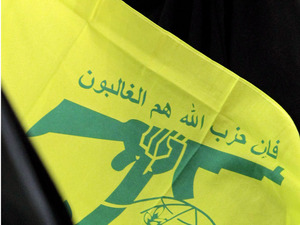 A man on trial for allegedly plotting attacks on Israelis in Cyprus described himself Thursday as a loyal Hezbollah member doing its bidding in Europe, but vehemently denied being part of a group preparing an attack.
A man on trial for allegedly plotting attacks on Israelis in Cyprus described himself Thursday as a loyal Hezbollah member doing its bidding in Europe, but vehemently denied being part of a group preparing an attack.
The trial of Hossam Taleb Yaacoub, a 24-year-old Swedish-Lebanese citizen, is of interest because he was arrested last July, days before a July 18 bus bombing in Bulgaria killed five Israeli tourists and their Bulgarian bus driver. Bulgarian authorities have accused the Shiite militant group Hezbollah of being behind that bombing.
Cypriot authorities have been reluctant to draw a connection between the alleged Cyprus plot against Israelis and the attack in Bulgaria, but the trial in Limassol has ratcheted up concerns about Hezbollah’s activities in Europe. The United States has declared Hezbollah a terrorist organization but the 27-nation European Union, of which Cyprus is a member, has not. That could shift if Hezbollah was shown to be behind attacks on Israelis in EU nations.
On Thursday, Yaacoub told the court under cross-examination that his Hezbollah handler in Lebanon told him to record the arrival times of Flight IZ167 from Israel on July 3 and July 7 last year. He said he only knows his handler as ‘Ayman,’ and never saw his face because Ayman always wore a mask.
The Mediterranean island of Cyprus is a popular vacation destination for Israelis, especially those seeking civil marriages.
Yaacoub also used a code to jot down in a red notebook the license plate numbers of two buses transporting passengers from the Israeli flight. The plate numbers — LAA 505 and KWK 663 — were deciphered using the words “Laamborghini” and “Kawasaky” as well as a number scribbled in the back of Yaacoub’s notebook.
Yaacoub said he would have delivered the information back to Ayman in Lebanon but he was arrested. He insisted, however, that he didn’t know what the information was going to be used for and was not part of a group planning an attack.
“I didn’t come here to commit a criminal act or anything else wrong,” Yaacoub, speaking in Arabic, said through an interpreter. “I’m not a member of a criminal group and I never conspired to commit a crime in my life … I was asked to bring information about the flight, but I don’t know what that would be used for.”
Yaacoub has pleaded not guilty to eight charges including conspiracy, consent to commit a criminal offense and participation in a criminal organization. He initially faced 17 terrorism and terrorism-related charges according to police, but prosecutors dropped any reference to terrorism in the new charges, without an explanation.
Prosecutors say Yaacoub knowingly conspired with others to “abduct a person for the purpose of subjecting him to harm or attacking him to cause grievous bodily harm” and was prepared to carry out missions around the world against Israelis on Hezbollah’s orders.
Yaacoub told the court that he was assigned unspecified “missions” for Hezbollah to Turkey in 2008 and the Netherlands and France in 2011. An official with knowledge of the investigation who spoke on condition of anonymity because the case was ongoing said Yaacoub delivered envelopes to these countries and wore specific clothing so he could be identified by a contact.
Yaacoub told the court he earns his living as a businessman. He said he travelled to Cyprus to purchase locally-made juice but also to collect the information that Hezbollah wanted.
State prosecutor Athos Kannaourides said Yaacoub’s business persona was simply a cover story for his Hezbollah activities and that he was dispatched to Cyprus to “prepare the ground” for attacks on Israelis here
Yaacoub admitted to being on Hezbollah’s payroll and receiving a monthly salary of $600. But he defended the group as a “multifaceted party” that has social, political and military wings and engages in charity work.
“I can’t say that this money is made from illegal activities, that’s the first time I have heard such an accusation,” he said.
Yaacoub also admitted that he lied to interrogators, at first denying that he had received weapons training at a Hezbollah training site in Lebanon. He called that a defensive reaction to being called a “terrorist” and having weapons in his possession.
“With such accusations, I wouldn’t even give them my name,” he said.
Yaacoub said he received training on American-made M-16 and Russian-made AK-47 assault rifles, rocket-propelled grenade launchers, the MP5 submachine gun and other handguns. He said his instructor at the camp was a man he knew as Abu Ali, and this man paid for his trip to Cyprus.
Yaacoub also said Ayman asked him to search for restaurants on Cyprus serving kosher food. But he said he didn’t know exactly what that was, only did a cursory check online and found nothing. Yaacoub also drew for investigators diagrams of the old Limassol Hospital parking lot and the Golden Arches hotel, which prosecutors said received groups of Israeli tourists.
The official with knowledge of the investigation said Yaacoub is believed to have cased Limassol’s central police station, its main post office and two hotels in the island’s eastern coastal resort of Ayia Napa.
Yaacoub said he was not supposed to contact Ayman from Cyprus. He said as a Hezbollah member, if he had been asked to commit a criminal act, “I have the right to refuse.”
In a twist, Yaacoub said his interrogators on Cyprus included a Frenchman called Francois and another man named Robert. However, Kannaourides, the prosecutor, denied that foreigners took part in Yaacoub’s interrogation.
The trial was adjourned until March 7.
Yahoo News/ AP

Leave a Reply
You must be logged in to post a comment.